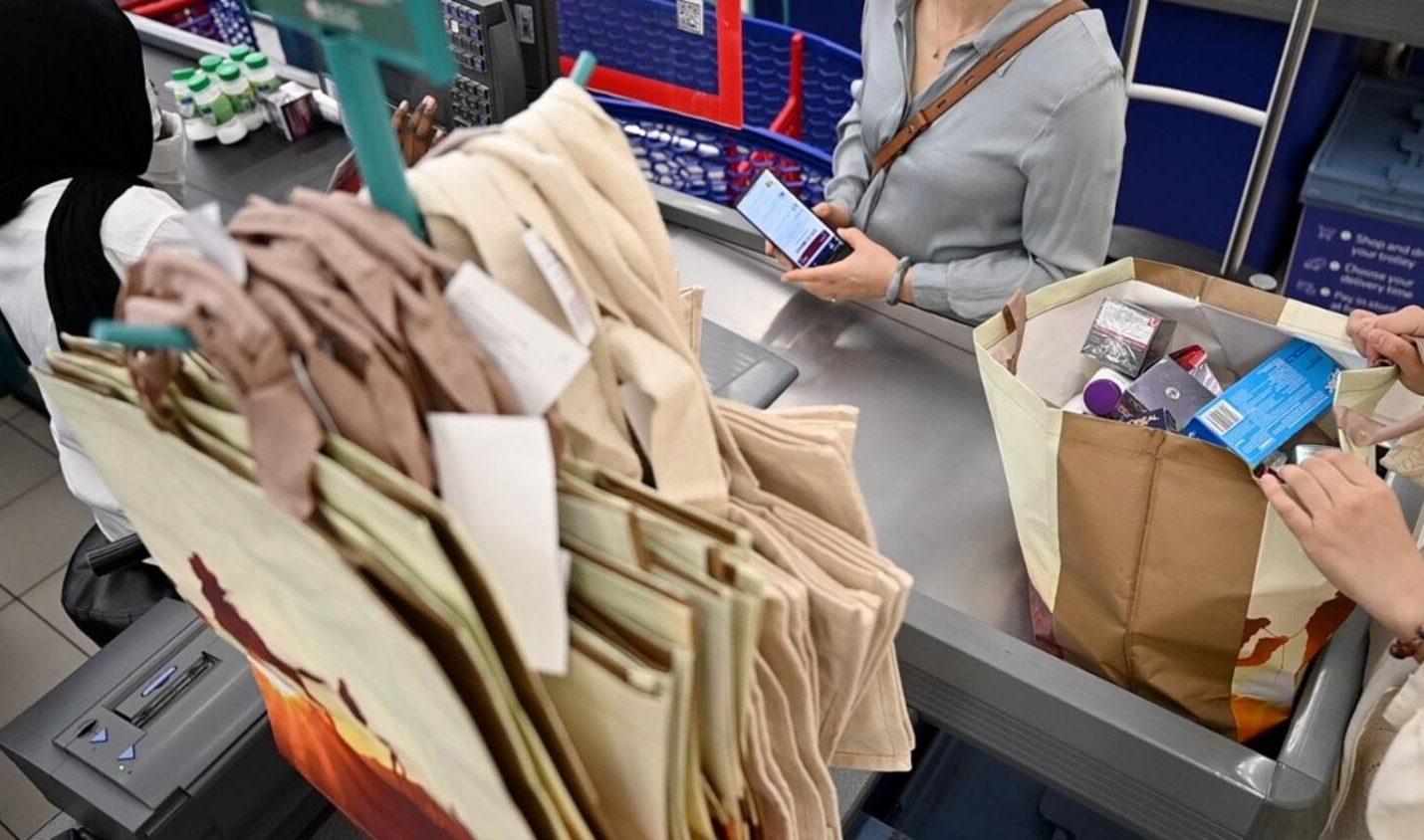
Report highlights 2 Egyptian projects among major clean energy ventures in N.Africa
A report by Energy Capital & Power highlighted two Egyptian projects – Suez Wind Power ...

Many shoppers opt to use plastic bags after a shopping trip without a second thought, says Jérôme Viricel, general manager of RECAPP at Veolia Middle East.
However, by imposing a tariff, and including plastic bags in the receipt, customers will be incentivized to move away from single-use plastics towards more sustainable alternatives such as paper and cotton bags.
“The tariff will make shoppers more conscious of the environmental impact of the choices they make,” he told Khaleej Times.
According to one report from The World Government Summit, the average person in the UAE consumes 1,184 plastic bags per year, far exceeding the global average of 307 bags per person. Viricel said that this highlights the importance of the new tariff, and the eventual ban of single use plastic bags within two years in Dubai.
“Plastic bags create huge amounts of litter in the environment and are harmful to both land and marine animals. These bags take hundreds of years to degrade, and they can release toxic substances that contribute to air pollution and health problems,” he said. “The UAE is making a concerted effort to reduce the amount of plastic waste generated, positioning itself as a regional leader in this area. In Abu Dhabi, the ban on single-use plastics already went into effect on June 1, and it is set to be followed by more initiatives to reduce plastic usage.”
He also highlighted several other innovative initiatives by both the public and private sectors that are helping to divert plastics away from landfills and to recycle them towards a more circular economy. For example, the Dubai Can sustainability drive launched by Sheikh Hamdan bin Mohammed bin Rashid Al Maktoum, Crown Prince of Dubai and Chairman of Dubai Executive Council, led to the reduction in usage of over one million single-use plastic water bottles, within only 100 days of the campaign launch.
In the private sector, RECAPP by Veolia – the UAE’s first free recycling app – has collected over 300 tonnes of recyclable waste including plastic bottles and aluminium cans, diverting it away from landfills since its launch in January 2021.
Viricel says that taking a community-centric approach to sustainability means placing the community and their needs at the core of the sustainability strategy. “It means empowering individuals to adopt a more sustainable lifestyle by making it more feasible and convenient for them to make environmentally-friendly choices. This approach will encourage individuals to do their bit for the environment and lead to more conscious communities.”
This community-centric approach is fundamental to RECAPP, which was created to support UAE residents as they strive to lead more sustainable lives, he explained. “After starting our operations in Abu Dhabi, we have since expanded into Dubai and our ultimate goal is to bring our recycling service to the whole of the UAE, for households as well as the business sector.”
Maryam Al Mansoori, GM at Rebound Plastic Exchange – a platform that allows B2B buyers and sellers to trade plastic while increasing the efficiency of recycling plastic at scale – also shared her thoughts on the new tariff, while stressing the need for better education on plastic recycling.
“If we change our habits, we can make a difference and protect our environment, and the time to start is now,” she said. “Plastic recycling begins in the household, through to the overall system of collection, recycling and reusing. No company operates in isolation and no one company can solve the problem of plastic waste alone.”
She added that there are significant opportunities for businesses to influence their wider environment. In particular, firms can engage with their suppliers, stressing their own priorities and values to their business partners and encouraging them to adopt the same values while also empowering local communities to gain monetary value from plastic material, helping provide new economic opportunities.
“The present challenges are a result of lack of awareness and incentives to recycle plastics,” she noted. These can include insufficient infrastructure on domestic levels to effectively produce and reuse; inconsistent regulatory frameworks on a global scale when it comes to dealing with recycled plastics; and lack of financing and investments to uplift and enhance recycling infrastructure in developing countries.
“The UAE is committed to create a sustainable future for the generations to come and Rebound is another example of the UAE’s global scale project as it enables multinational companies to access high quality, certified and traceable plastic feedstock – thus creating a point of market entry for many countries around the world, including the UAE,” she added. “Overall, these initiatives have resulted in consumer behavior change, which will scale up to become our lifestyle in the near future. As a major actor of the global movement that is shifting to more sustainable and environmentally friendly value chains, the UAE is on the right path to changing minds, towards circularity.”
She stressed that there is now a need to drive rapid and radical transformation throughout the region with the support of governments, the private sector, and the public sector. “Public private partnerships are a key enabler to achieving circularity and building sustainable economies; and, we at Rebound bridge such opportunities as we support governments’ commitments to the Basel Convention’s Amendments while also responsibly participating in the trade of plastic.”
A report by Energy Capital & Power highlighted two Egyptian projects – Suez Wind Power ...
The opening concert of the Annual Meeting 2025 in Davos-Klosters will address the pressing issues ...
Juhayna Food Industries proudly announced that its agricultural arm, El Enmaa for Agricultural Development, has ...


اترك تعليقا